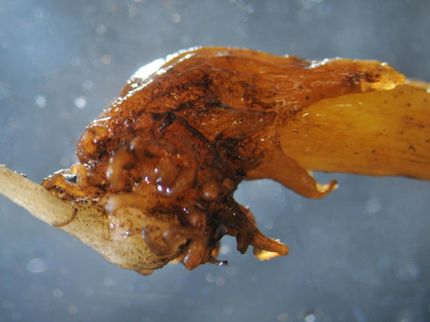Researchers identify genes related to vitiligo
For the past decade, Richard Spritz's lab at the University of Colorado Anschutz Medical Campus has been searching for potential causes of Vitiligo, an autoimmune disease that gives rise to patches of white skin and hair.
In a study Richard Spritz, MD, Professor and Director of the Human Medical Genetics and Genomics Program at the University of Colorado School of Medicine, and a team of international researchers announce they have identified 23 locations on the human genome that are newly linked to susceptibility for vitiligo.
By identifying these genes, the investigators can provide a framework for the genetic architecture and biological mechanisms of vitiligo, highlight relationships with other autoimmune diseases and melanoma and offer potential targets for treatment.
"This study doubles the number of known genes involved in risk for vitiligo," said Spritz.
Spritz and his fellow researchers conducted genome-wide association studies on 4,680 people with vitiligo and 39,586 control cases and found the genes that provide a framework for the genetic architecture and biological mechanisms of vitiligo and highlight relationships with other autoimmune diseases and melanoma.
Spritz's lab is trying to identify causal mutations in these genes by using DNA sequencing and genetic studies involving a large number of vitiligo patients from various different ethnic groups. This study focused on subjects of European ancestry.
"One of the purposes of the genome project was to give us the tools to do more complicated disease analysis," said Spritz. "What's emerging in general for complex diseases is that it is changes in gene regulation rather than gene structure that are causes."
A better understanding of the causes of vitiligo could also lead to breakthroughs in other conditions. Vitiligo is epidemiologically associated with several other autoimmune diseases, including autoimmune thyroid disease, pernicious anemia, rheumatoid arthritis, adult-onset type 1 diabetes, Addison's disease, and lupus. The researchers found associations between genes indicated in some of those conditions and vitiligo, and while it remains uncertain whether they reflect shared or different causes, it offers promising areas for future research.
Original publication
Other news from the department science

Get the life science industry in your inbox
By submitting this form you agree that LUMITOS AG will send you the newsletter(s) selected above by email. Your data will not be passed on to third parties. Your data will be stored and processed in accordance with our data protection regulations. LUMITOS may contact you by email for the purpose of advertising or market and opinion surveys. You can revoke your consent at any time without giving reasons to LUMITOS AG, Ernst-Augustin-Str. 2, 12489 Berlin, Germany or by e-mail at revoke@lumitos.com with effect for the future. In addition, each email contains a link to unsubscribe from the corresponding newsletter.

















































